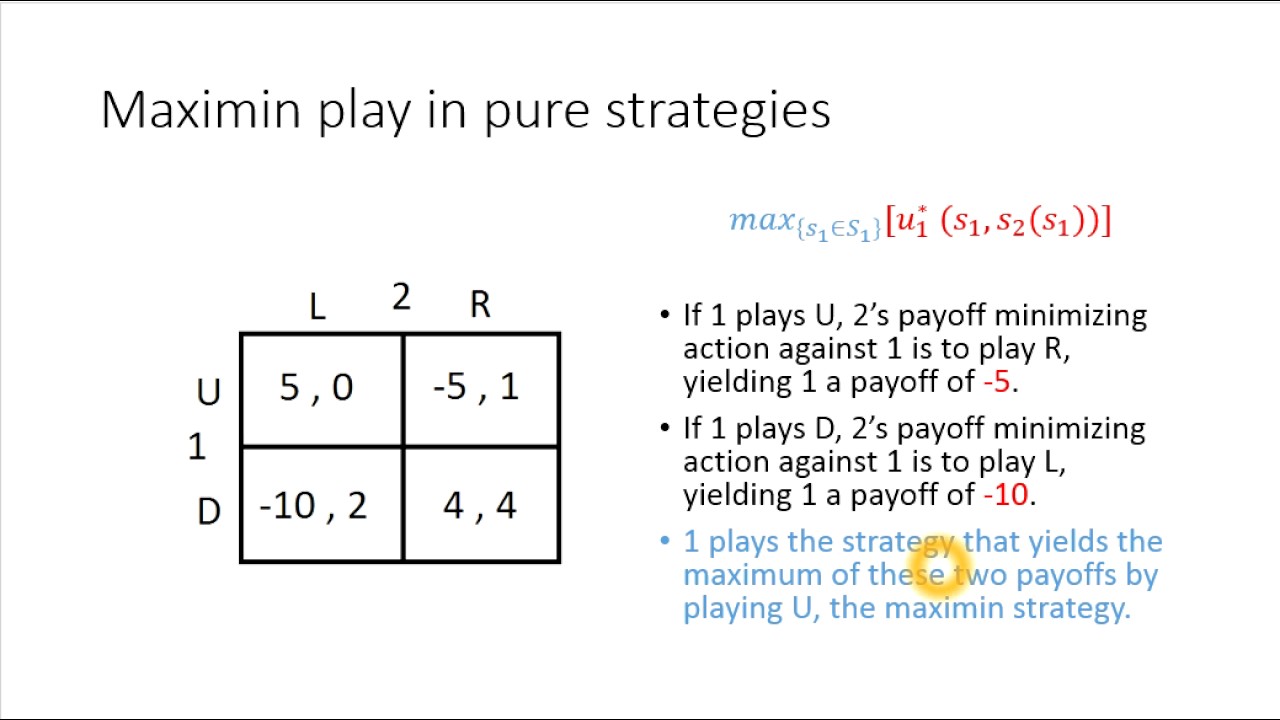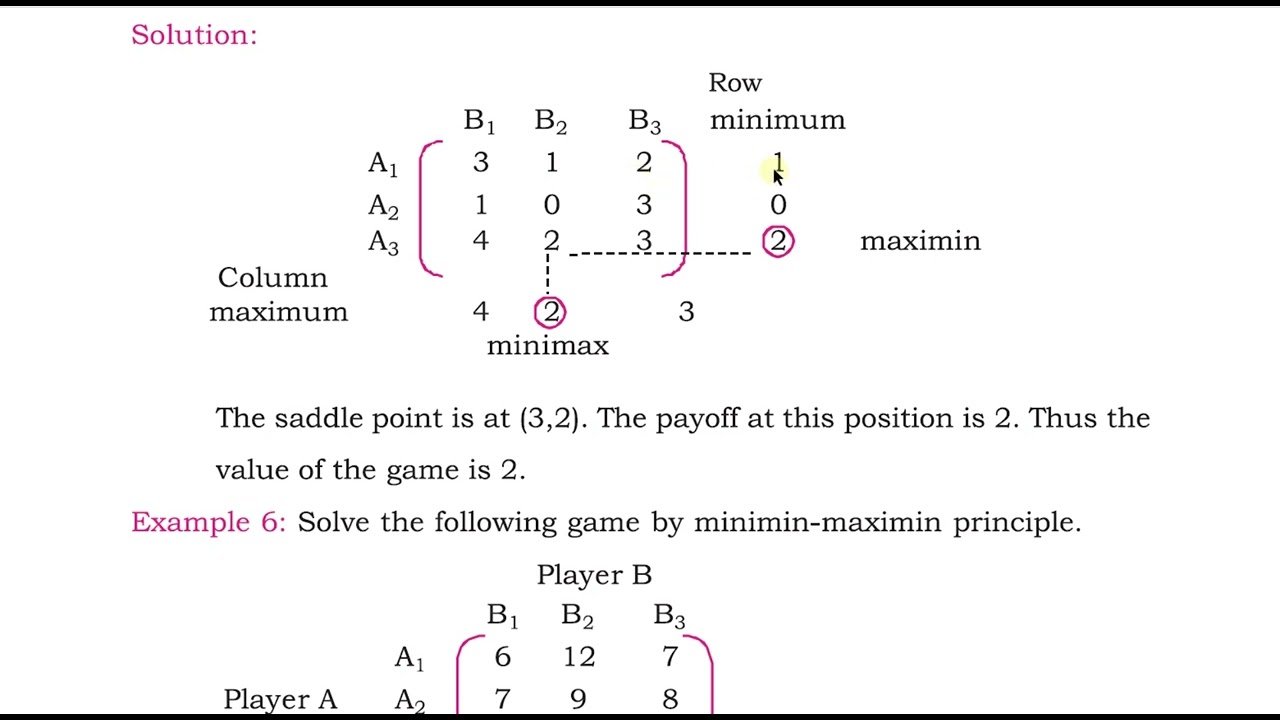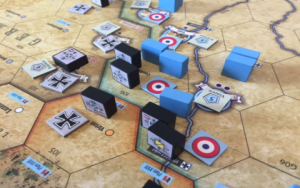minimax strategy game theory
Well now, if you’re here and wonderin’ about this thing called “minimax strategy” in game theory, let me try to make it simple for you. It’s like playin’ a game where you’re always thinkin’ about the worst that could happen and tryin’ to avoid it. Imagine you’re in a game with another player, and no matter what move you make, you wanna be sure that even if things go bad, you won’t lose too much. That’s the idea behind the minimax strategy.
The minimax strategy is all about makin’ decisions where you try to minimize the worst possible outcome. Now, I know that sounds a bit complicated, but let me break it down for you. Say you’re playin’ a game like chess, or maybe somethin’ simpler, like rock-paper-scissors. The key is to always think about the worst thing that could happen with each move you might make, then choose the move that has the least bad outcome. If you do that, you’re usin’ minimax strategy!
Now, let me tell you a little story. Back in my day, when we kids would have a row over who gets the last piece of candy or the last turn in a game, we didn’t have no fancy computers or algorithms, but we sure knew how to make decisions that helped us avoid a big loss. We’d play rock-paper-scissors, and no matter what, you always try to figure out what your opponent might do and make sure you weren’t gonna get caught in a bind. That’s pretty much what minimax is about, just with a lot more math involved nowadays!
What is Minimax in Game Theory?
In game theory, we have somethin’ called a zero-sum game, which is just a fancy way of sayin’ that one player’s gain is always another player’s loss. So, in this kind of game, you’re tryin’ to pick the strategy that will minimize your worst possible loss, or in some cases, maximize your best possible gain. The minimax algorithm is the most common way of doin’ this in two-player games.

Now, don’t go gettin’ confused here—minimax and maximin sound a bit alike but are actually a bit different. Minimax is about minimizin’ the maximum loss, and maximin is about maximizin’ the minimum gain. It’s all about makin’ sure you’re not caught in a situation where you lose big. Think of it like tryin’ to make sure the worst you can do is not too bad.
John von Neumann and the Minimax Theorem
Back in 1928, a smart fella named John von Neumann proved somethin’ called the Minimax Theorem. This theorem says that in any two-player, zero-sum game, there’s a best strategy for both players, and both players can follow this strategy to avoid losing too much. What he showed was that if both players play optimally (that is, they use minimax strategy), they’ll end up with the same outcome. In other words, the game can reach what’s called a Nash equilibrium—where neither player has an incentive to change their strategy.
Now, I know that might sound like a lot of jargon, but in simpler terms, it just means that if both players are thinkin’ ahead and playin’ smart, the game will settle into a balanced state where neither player can do better by changin’ their approach. So, if you wanna be good at these games, always think about what’s the worst that could happen, and choose the best of the worst outcomes!
Examples of Minimax Strategy in Action
Let’s think about a simple example. Say you’re playin’ a game of rock-paper-scissors. You know that your opponent can choose rock, paper, or scissors, and they’re just as likely to pick any of the three. If you always pick rock, you’re gonna lose to paper. If you always pick paper, you’re gonna lose to scissors. But if you mix it up and pick each one with equal chance, you minimize the risk of losing too much. That’s a simple version of minimax strategy in action. You’re not always gonna win, but you’re makin’ sure that your losses are as small as possible.
Another example could be a game like chess. You might have a move that could lead to a big gain, but it also leaves you vulnerable. The smart move is to pick the one that has the least bad outcome, even if it doesn’t give you a huge advantage right away. Over time, if both players keep makin’ the least bad moves, it might end up in a draw or a fair win.
Why Minimax Matters

Why should you care about all this minimax stuff? Well, it’s important because it helps you make decisions when you’re faced with uncertainty. Whether it’s a simple game or a complex situation, minimax gives you a way to think through your options and choose the one that’s least risky. And let me tell you, when you’re dealin’ with a tough situation, it’s always good to know you’re pickin’ the best of the bad options!
In the end, minimax helps you play smarter, think ahead, and avoid big losses. Whether you’re playin’ a game or just makin’ decisions in life, it’s a good strategy to keep in mind. Just remember: when things seem uncertain, think about the worst that could happen, and choose the option that minimizes that risk. That’s the heart of minimax, plain and simple.
Conclusion
So, that’s the minimax strategy in a nutshell. It’s all about makin’ the best of a bad situation and makin’ sure you don’t lose too much. It’s a smart way to approach two-player, zero-sum games, and it works in a lot of different scenarios. You don’t have to be a mathematician to use it, just think about your options, and choose the one that minimizes your risk of a big loss. Simple, right? Well, I hope that helps clear things up a bit!
Tags:[minimax, game theory, strategy, zero-sum games, John von Neumann, decision-making, Nash equilibrium, Maximin, chess, rock-paper-scissors]







